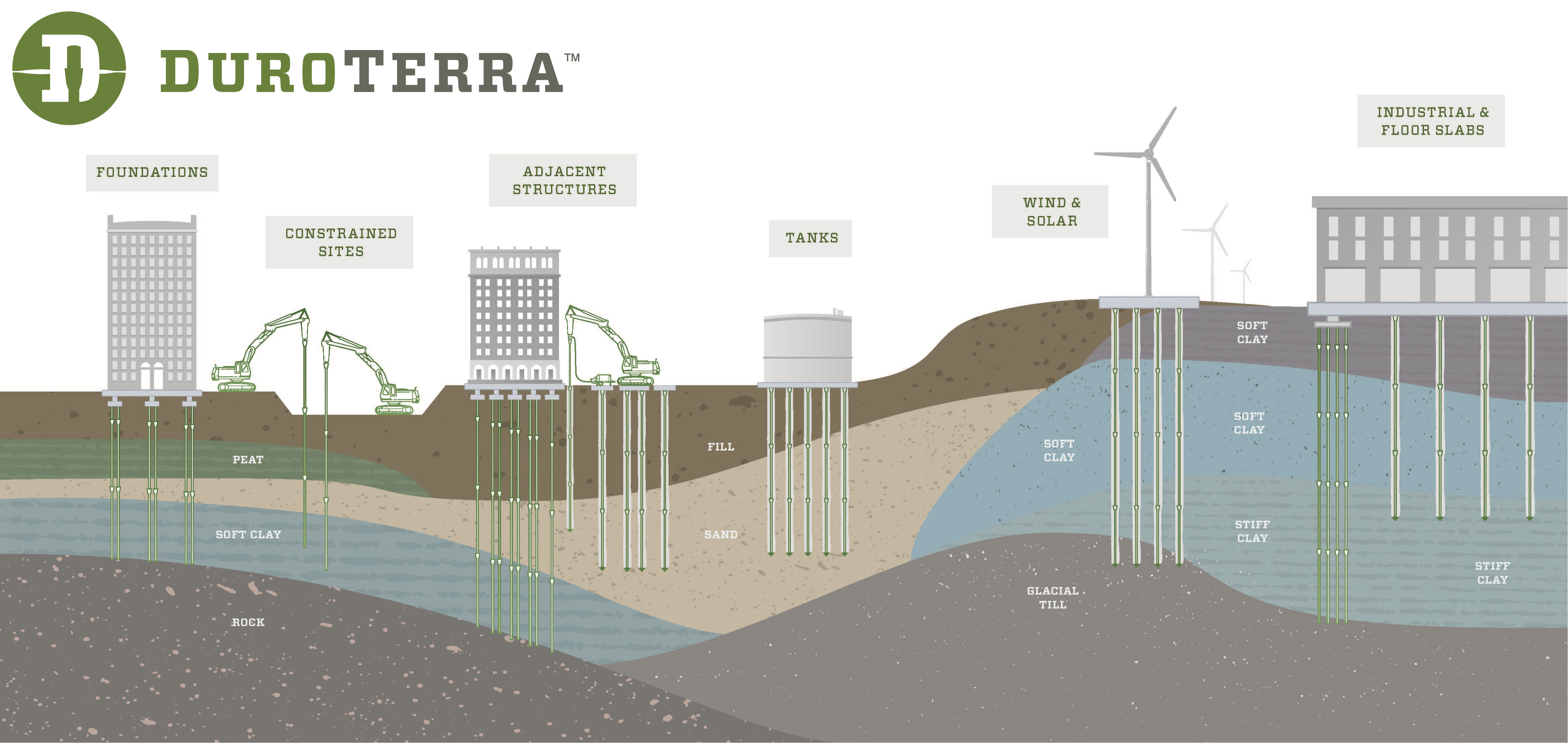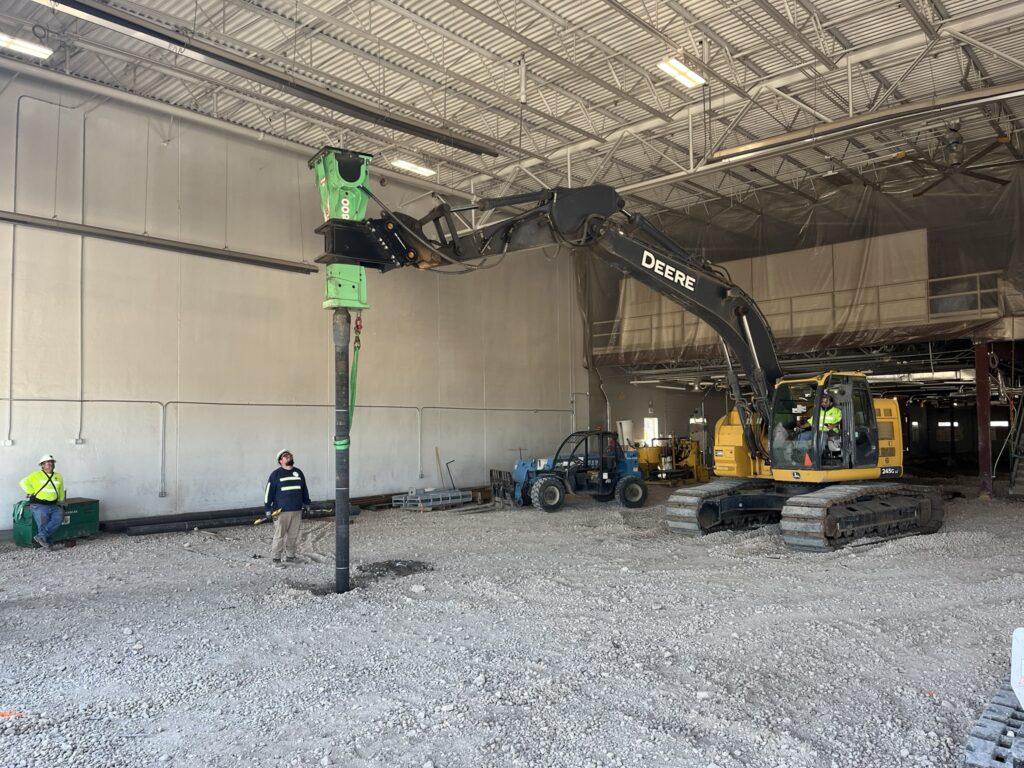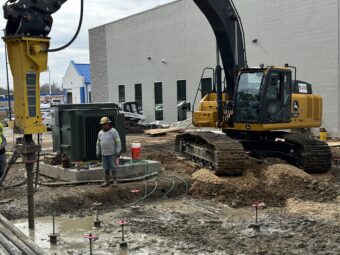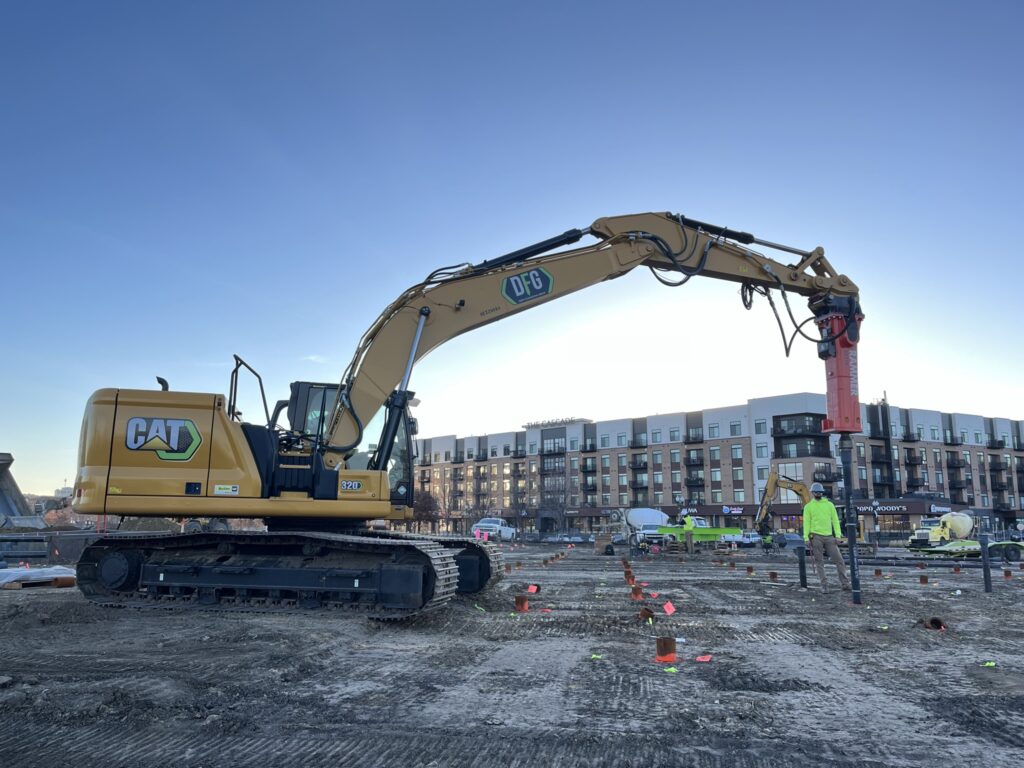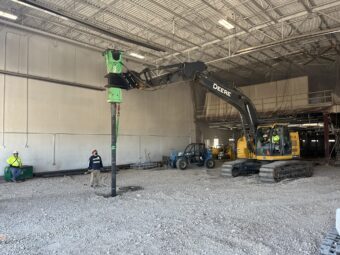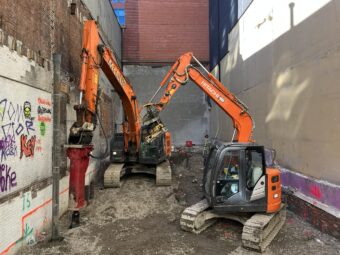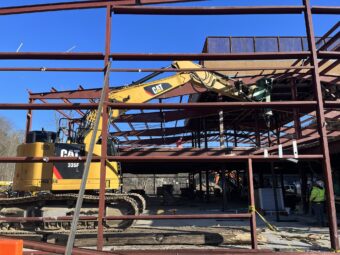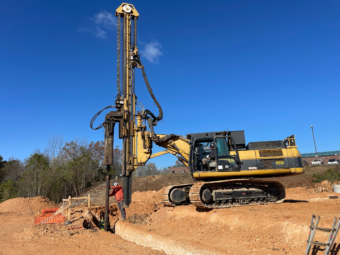Contractor Spotlight – Harrison Western
 This month, DuroTerra’s Contractor Spotlight moves to the Rocky Mountains to focus on Harrison Western, headquartered in Lakewood, Colorado. Harrison Western is an American-owned and operated heavy civil, geotechnical, tunneling and mining contractor in operation since 1968 that works coast to coast. Their geo-construction work focuses on landslide/slope/rock stabilization, retaining walls, soil nails and ground anchors, specialty grouting and ground improvement, underpinning, settlement mitigation, micropiles and other deep foundations.
This month, DuroTerra’s Contractor Spotlight moves to the Rocky Mountains to focus on Harrison Western, headquartered in Lakewood, Colorado. Harrison Western is an American-owned and operated heavy civil, geotechnical, tunneling and mining contractor in operation since 1968 that works coast to coast. Their geo-construction work focuses on landslide/slope/rock stabilization, retaining walls, soil nails and ground anchors, specialty grouting and ground improvement, underpinning, settlement mitigation, micropiles and other deep foundations.
For more information about Harrison Western, please visit harrisonwestern.com.
Recently, Harrison Western chose to use Ductile Iron Piles (DIPs) as a lower-cost, faster alternative to micropiles on an existing warehouse slab re-support project. In areas with sufficient headroom, DIPs were installed through landfill materials and into the underlying bedrock. Please continue reading below to learn more about Harrison Western’s project in Denver.
PROJECT HIGHLIGHT – Warehouse Floor Slab Support
The project consisted of providing deep foundations for the re-support of a new heavily-loaded wasrehouse floor slab inside an existing building. The warehouse was originally constructed over the top of an existing capped landfill. Overhead clearances included two separate limitations of 12 and 24 feet within the areas planned for construction of the new slab.
Soil conditions consisted of an upper layer of a clayey landfill cap approximately 10 ft thick, then approximately 50 – 55 ft of construction and other debris type landfill materials directly overlying claystone bedrock at average depths of 60 to 65 feet.
The original plan for providing deep foundations inside the existing structure included drilled and cased micropiles installed through the landfill materials and to develop capacity in the underlying bedrock. Specialty contractor Harrison Western Construction explored an alternative option of Ductile Iron Piles (DIPs) in the higher-headroom area where the DIPs could be driven rapidly through the fill material to develop capacity in end-bearing on the bedrock. In addition to the schedule advantages of using a driven system, the DIP option would not generate any landfill spoil material or necessitate its specialty collection and disposal. Further, the DIP system could develop capacity in end-bearing, eliminating the need for additional drilling into the underlying bedrock.
Based on a number of key factors including site logistics, overhead clearances, and the advantages DIPs offered compared to micropiles, the project team chose to use Ductile Iron Piles for areas where headroom was approximately 24 feet. For parts of the work area with lower clearances, traditional drilled and permanently cased micropiles were used.
An initial sacrificial load-testing program for the DIPs was performed to determine and confirm design capacities and assumptions. Harrison Western used a John Deere 245G excavator equipped with a Montabert v1800 percussion hammer to install the DIPs.
“The use of DIPs on this project allowed us to improve project schedule and economics for our client and ultimately resulting in a win-win for everyone due to the unique nature of the underlying landfill materials,” said Tom Szynakiewicz, PE, BCGE Vice President at Harrison Western. To learn more about the project, check out the full project summary.

